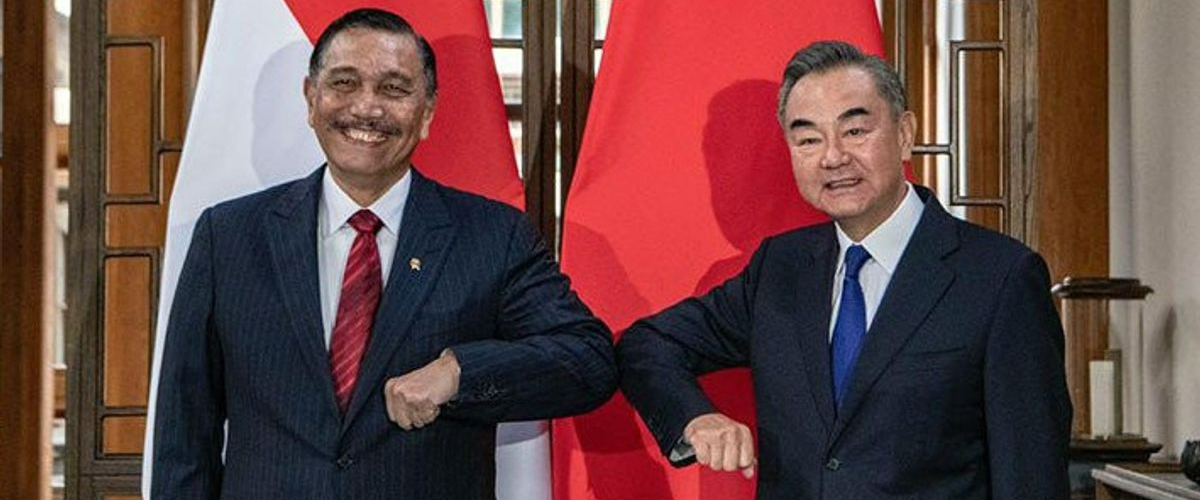Why Indonesia Is China’s New Best Friend in Southeast Asia

When Indonesia’s President-elect Prabowo Subianto chose to visit China months before his inauguration, it caused eyebrows to raise across the region. Jakarta has long sought to balance its relationship with Beijing and its close ties with the US, so to send such a strong message caught many off guard.
Yet the blossoming relationship is a sign that these Asian economic giants are finding fresh ways to engage. China and Indonesia’s friendship is being cemented along the lines of increased opportunities for investment, but it’s not just that. Indonesians are increasingly concerned about the Biden administration’s failure to restrain Israel’s actions in Gaza. If the US wants to win hearts and minds while China plays the long game in Indonesia, then finding a way to allay those concerns is critical.
Beijing has been keen to highlight Washington’s gaps. China’s Foreign Minister Wang Yi made a whirlwind tour of the world’s most populous Muslim nation last week, keen to build ties with Prabowo. The trips have coincided with a noticeable rise in positive sentiment toward China among Indonesians, detailed in a recent survey from the ISEAS-Yusof Ishak Institute.
As Leo Suryadinata and Siwage Dharma Negara note, the ongoing war in Gaza has clearly turned Indonesians against US foreign policy actions. When asked if the Association of Southeast Asian Nations “were forced to align itself with one of the strategic rivals, which should it choose?”, 73% of Indonesian respondents selected China while only 27% preferred the US. This is a significant shift from 2023, when 54% of Indonesian respondents nominated China and 46% sided with the US.
Beijing is sensing the winds of change. During his meetings with outgoing leader Joko Widodo Thursday, Wang denounced the US for blocking United Nations resolutions calling for a ceasefire in Gaza. Not a new line for the Chinese, but their vocal support has not gone unnoticed in Southeast Asia, home to two sizeable Muslim majority nations: Indonesia and Malaysia. These countries want to see see more global leadership on an issue that has stoked outrage across their communities.
Managing Indonesia’s interests against the backdrop of the US-China rivalry will be a key task for Prabowo when he takes on his new job this October. He has had a mercurial approach to navigating Beijing, and has flip-flopped on whether he sees the nation as friend or foe. This is a clever strategy and in line with Indonesia’s bebas-aktif, or free and active foreign policy, that’s likely to continue under the new president.
China is an important source of foreign investment for Indonesia — coming in only second to Singapore — and it is also the largest trading partner. Outgoing leader Widodo has also been keen for Beijing to help build his legacy project, Nusantara, the new capital city that is still under construction in the province of East Kalimantan.
But as Rizal Sukma, senior fellow with CSIS in Jakarta points out, although Jakarta has become more comfortable in dealing with Beijing over the years, citizens express very real concerns about the growing economic relationship, particularly over China’s migrant workers and how reliant Indonesia is becoming on the world’s second-largest economy, especially in the mining sector. Infrastructure and industrial projects tend to be the areas where the Chinese like to invest the most. One of the most high-profile has been the Jakarta-Bandung high-speed rail project, worth some $7 billion. But there is scrutiny, too, with sporadic protests highlighting the antagonism toward projects funded by Chinese companies that threaten to displace indigenous communities.
So even as the two become closer, the US is still hugely strategic, as a recent survey by Indonesia’s National Research and Innovation Agency shows. Jakarta depends on military equipment that is mainly purchased from America, and holds annual joint military exercises under the Garuda Shield program. It needs Washington’s active presence and support to push back against China’s claims that overlap with Indonesia’s in the South China Sea — another challenge for Prabowo at a time when Beijing is determined to make its presence felt throughout the contested waterway.
The US is only losing in the court of public opinion because of its lack of action to help end the suffering for Palestinians. Making its position clear could go a long way toward changing that.
https://www.bloomberg.com/opinion/articles/2024-04-21/indonesia-is-china-s-new-best-friend-in-southeast-asia?embedded-checkout=true



